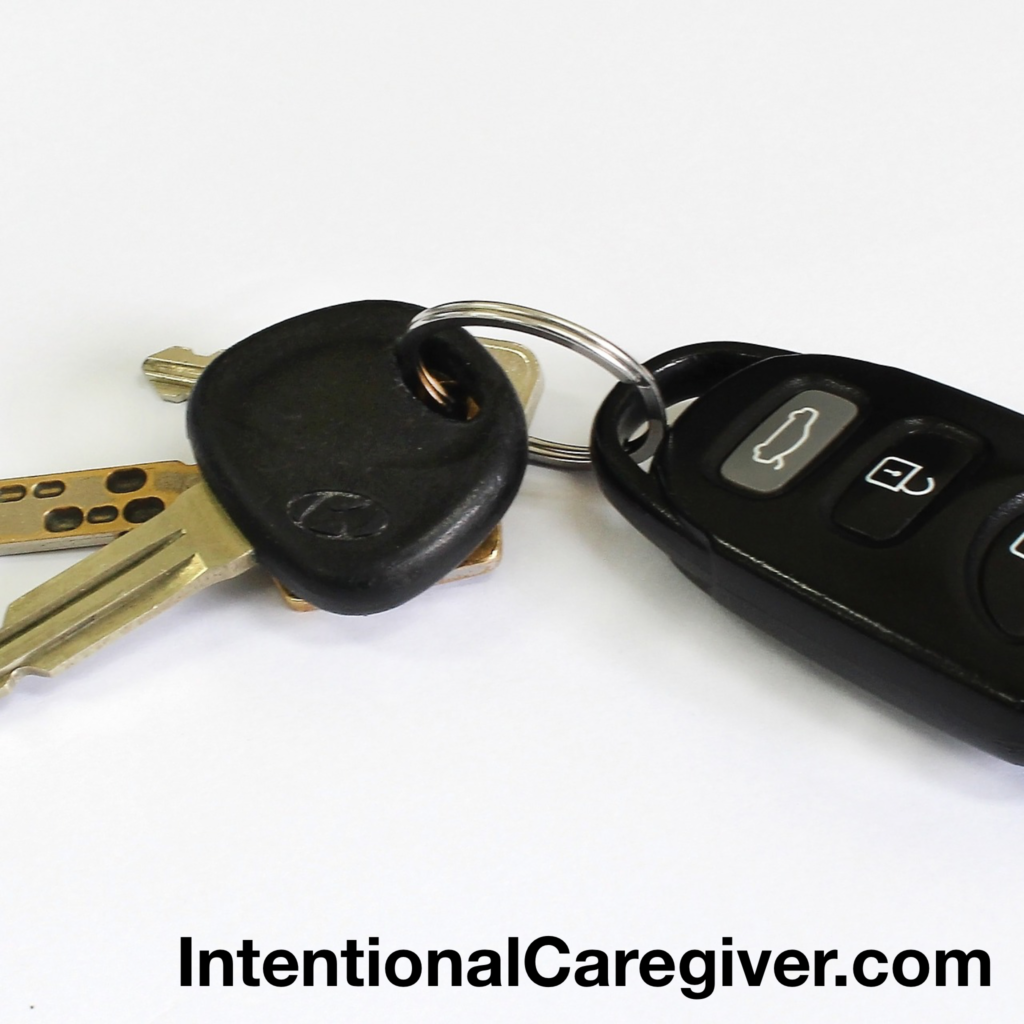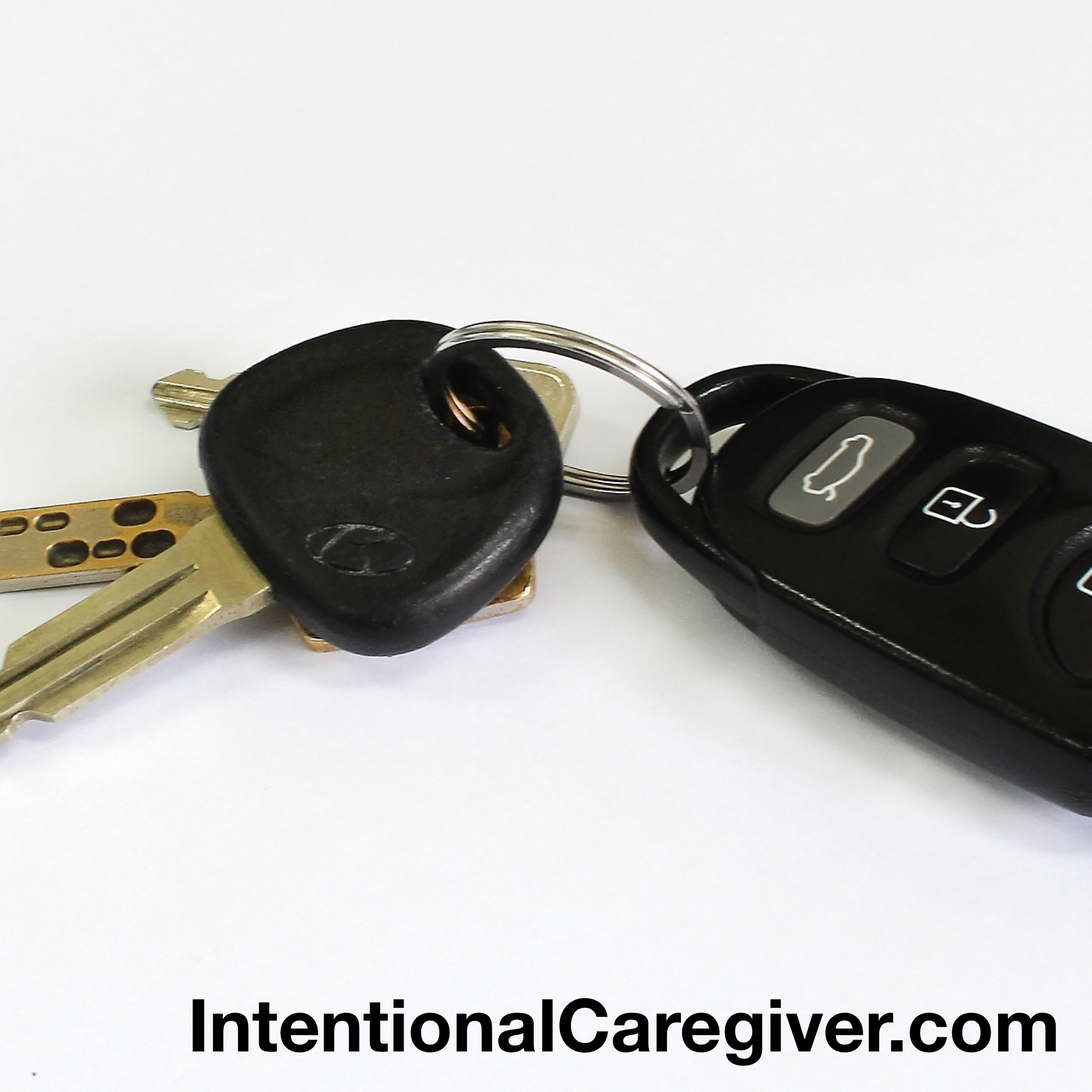
My father was in his eighties and still driving. I had driven with him and knew he was driving way below the speed limit. I also knew he was not as aware of his environment as he should be. It was the kind of situation where I was afraid he would be the cause of an accident.
We went to renew his driver’s license. My dad could not even see the arrows in the machine that indicate peripheral vision. When my dad was not listening I asked the examiner not to pass him because of my fears about his and other people’s safety. In spite of my protest, my dad’s license was renewed. I shared my concerns with him. Thankfully my dad handed his car keys over to me shortly after that. Many of us are not that lucky. How do you have the conversation about taking the keys away when you know the senior in your life is a danger to themselves and others on the road?
Let’s take a look at the skills that are needed for a good driver and you assess if your senior has them:
- good vision
- good hearing to hear people honking or train noises
- good awareness of surroundings
- good memory to help with navigation
- good joint mobility and the ability to turn around when parking or changing lanes
- good reaction time
How do you know when there may be problems with driving with the senior in your life:
- multiple episodes of potential accidents
- unexplained dents or scrapes on the car
- unexplained damage to driveway, garage, or areas around the driveway like mailbox
- episodes of getting lost due to memory issues
- difficulty following or understanding traffic signals
Hiding the car keys may be a temporary fix but a gesture like that can create anger and defiance which is not the ending you are looking for. You may need to go for a ride to observe for yourself firsthand the quality of driving the senior in your life is displaying. Don’t criticize but simply observe how things go on the ride.
Begin the conversation from a place of love and concern. Mention you are concerned about their safety and the safety of others. Gently mention any unsafe things that occurred during your ride that might of impacted the safety of others. Ask your loved one to imagine how they would feel if someone was hurt because of something that was done when they were driving.
Schedule a time to sit down and have a discussion. That signals this is something that is important to you and to them. Make sure there are no distractions. Let them know this is something you have been struggling with because you understand how important driving is and how it helps them to be independent. Approach the conversation owning your feelings. Statements like “I have been struggling with how to talk to you about this” or “I love you and am worried about your safety” are good places to start.
Hear them out without offering criticism. Make it clear you want to understand their position. The best thing you can do is stay calm even if they are saying things you disagree with or do not have a sense of their limitations or potential danger. Just listen so they feel they are being heard and treated with respect.
Come to this discussion prepared with an alternative. For example, I know getting out is really important to you. I would be happy to drive you when you need to go somewhere. Other potential alternatives might be public transportation, a cab, an Uber or Lyft. If money is an issue perhaps you can offer to help pay for this transportation. Perhaps you could hire someone to be their driver or find a friend, neighbor, or relative that could help with transportation. Sometimes adult day centers or other programs offer free transportation. Explore these options.
It may be that you are not the best person to have this conversation. You may want to identify someone else they trust that they may listen to. It may be that you need to enlist the help of a doctor, religious leader, trusted neighbor, or friend.
Even if this initial conversation does not immediately get them out of the car don’t be discouraged. You have opened the door to an important concern. You can return to it again sometime in the future. That was the reason my father handed the keys over to me. He thought about what I had said and recognized that my safety concerns were legitimate and came from a place of love. From that moment on I agreed to be his personal driver and it was a resolution we both could live with.
LEARN TO LOVE YOUR LIFE AGAIN
 Do you feel like you need to hit the REFRESH button on your life? Download our free guide and begin to create your best life yet!
Do you feel like you need to hit the REFRESH button on your life? Download our free guide and begin to create your best life yet!



